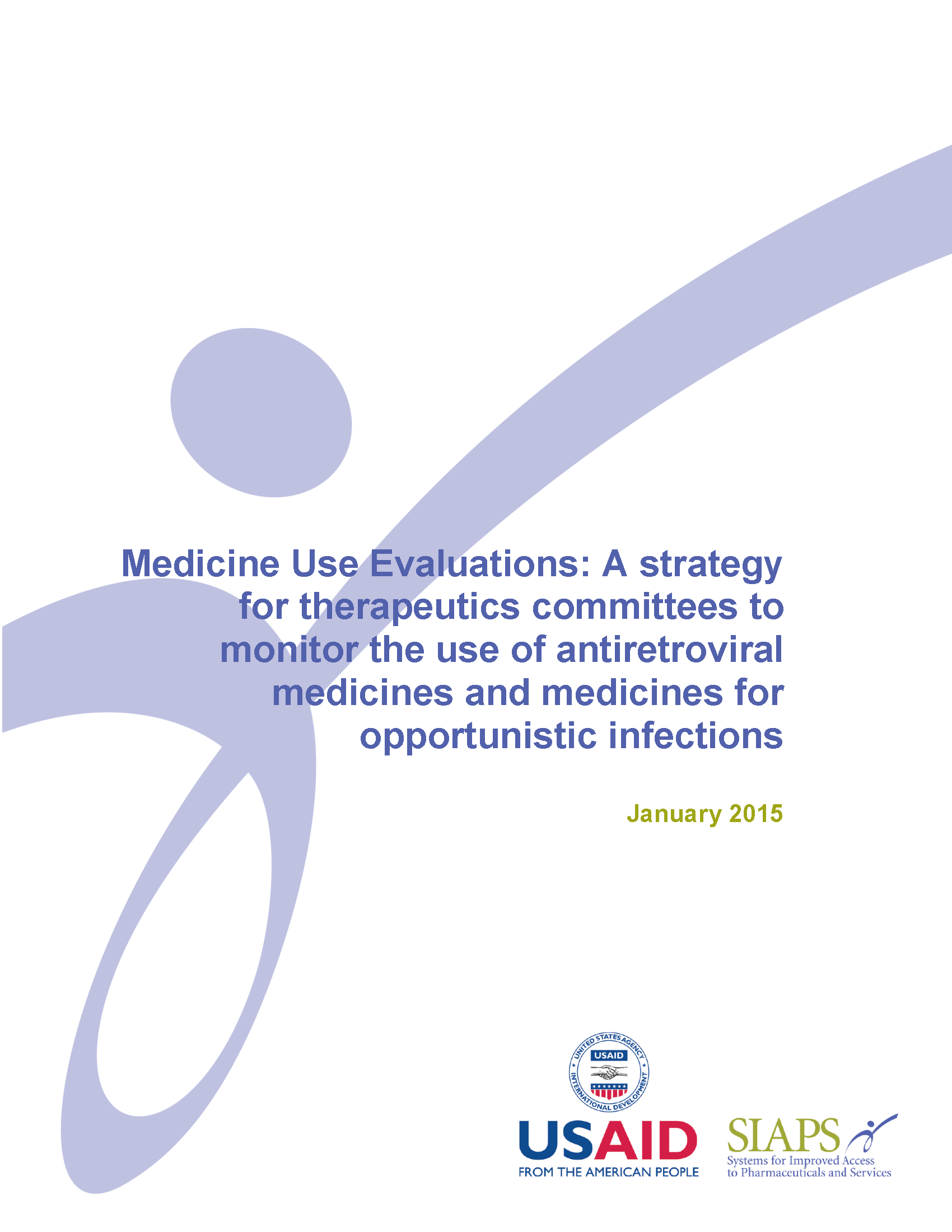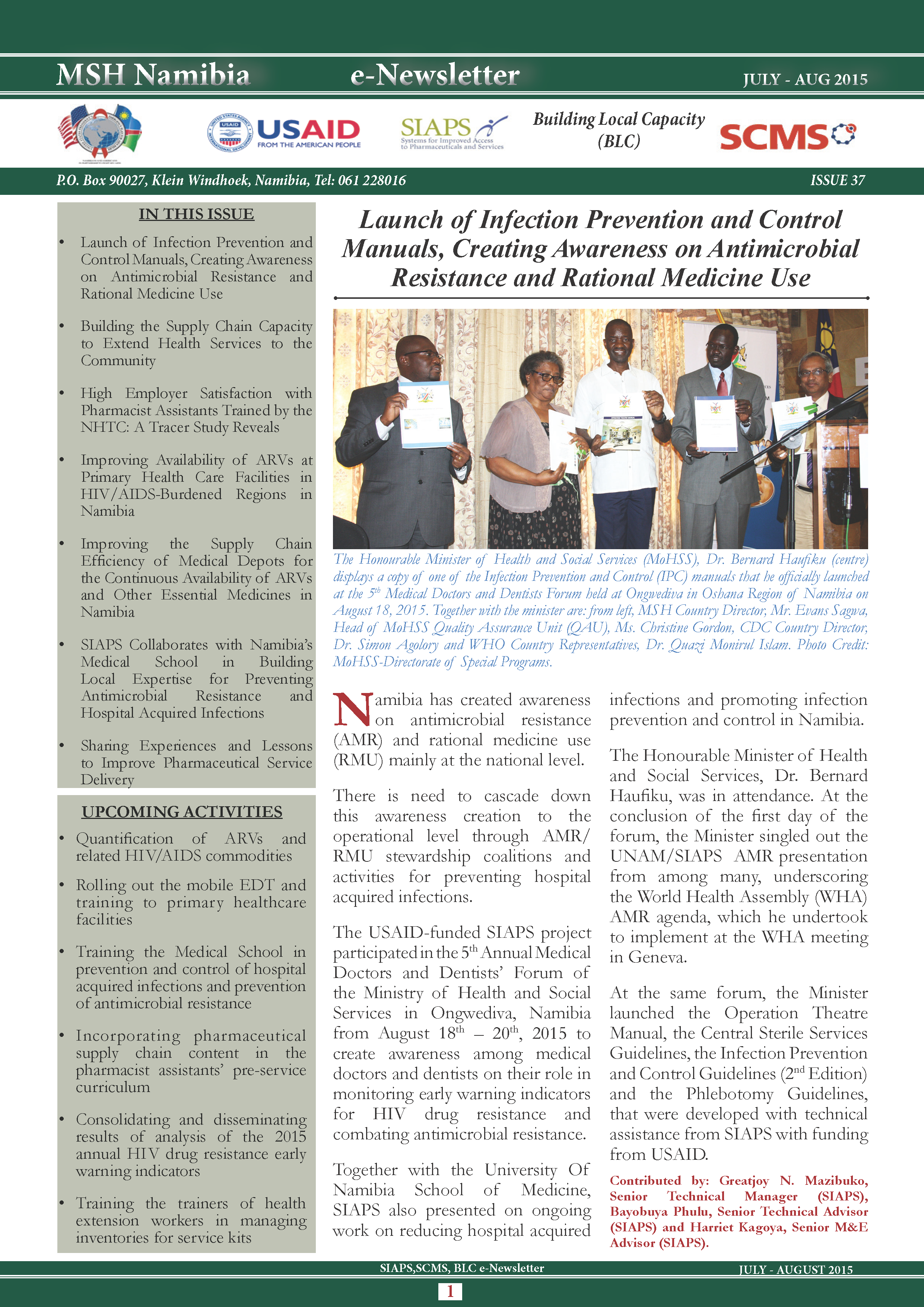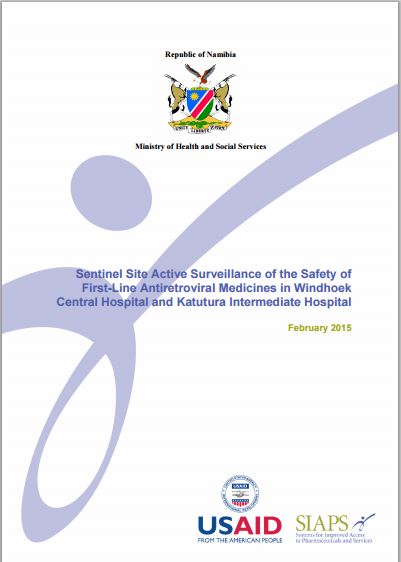This manual is intended to assist therapeutic committees (TCs) in monitoring medicine use in their health facilities through regular medicine use evaluations (MUEs). The manual lists and describes the various steps involved in conducting an MUE. It also: describes the conditions of rational use of medicines (RUM) describes the extent and nature of the inappropriate … Read more
In this issue: Launch of Infection Prevention and Control Manuals, Creating Awareness on Antimicrobial Resistance and Rational Medicine Use Building the Supply Chain Capacity to Extend Health Services to the Community High Employer Satisfaction with Pharmacist Assistants Trained by the NHTC: A Tracer Study Reveals Improving Availability of ARVs at Primary Health Care Facilities in HIV/AIDS-Burdened Regions in Namibia Improving the Supply Chain Efficiency of Medical … Read more
The USAID-funded SIAPS program has been influential in designing Namibia’s approach to preventing the development of antimicrobial resistance including HIV drug resistance. Due to the rapid scale-up of ART services, Namibia has achieved high ART coverage of the HIV-positive population. Although it can be minimized, HIV drug resistance (HIV-DR) is anticipated to emerge among people … Read more
In the Republic of Namibia, the Systems for Improved Access to Pharmaceuticals and Services (SIAPS) program receives funding from the US Government to provide technical guidance for the development and implementation of innovative strategies and programs to strengthen pharmaceutical systems in support of the HIV/AIDS program. SIAPS is collaborating with USAID/Namibia to ensure the availability … Read more
A Mengistu, A Stergachis, E Sagwa, G Mazibuko, HIV/AIDS, J Gaeseb, M Mann, Namibia, Pharmacovigilance, rational medicine use, RMU
The integrated community case management (iCCM) of common killers of children under five (diarrhea, pneumonia and malaria) has been implemented in many low-income countries to increase access to treatment and prevent child deaths. iCCM, which has been hailed as a successful strategy by the WHO and UNICEF, involves the delivery of timely and low-cost interventions … Read more
“Antimicrobial resistance (AMR) is a major threat to the long-term security of public health and has the potential to negatively impact our society. It is a serious and growing global health security risk, which needs to be prioritised at local and international levels.”- Dr. Aaron Motsoaledi, South African Minister of Health In May 2014, the … Read more
The irrational use of medicines, a major driver of antimicrobial resistance (AMR), is often perpetuated by those who should be best able to stop it—health care professionals such as doctors and pharmacists. This, of course, raises an important question: why do health care professionals continue to practice potentially harmful behaviors? In many cases, the answer … Read more
A year ago, the World Health Organization (WHO) released its first global report on antimicrobial resistance, revealing a number of troubling trends: rising rates of resistance to first-line antibiotics for common infections such as urinary tract infections, gonorrhoea, and staph infections; a growing inability to treat deadly diseases like tuberculosis (TB) with second-line and even … Read more





